Oregon Trucking Online: Navigating Regulations and Resources
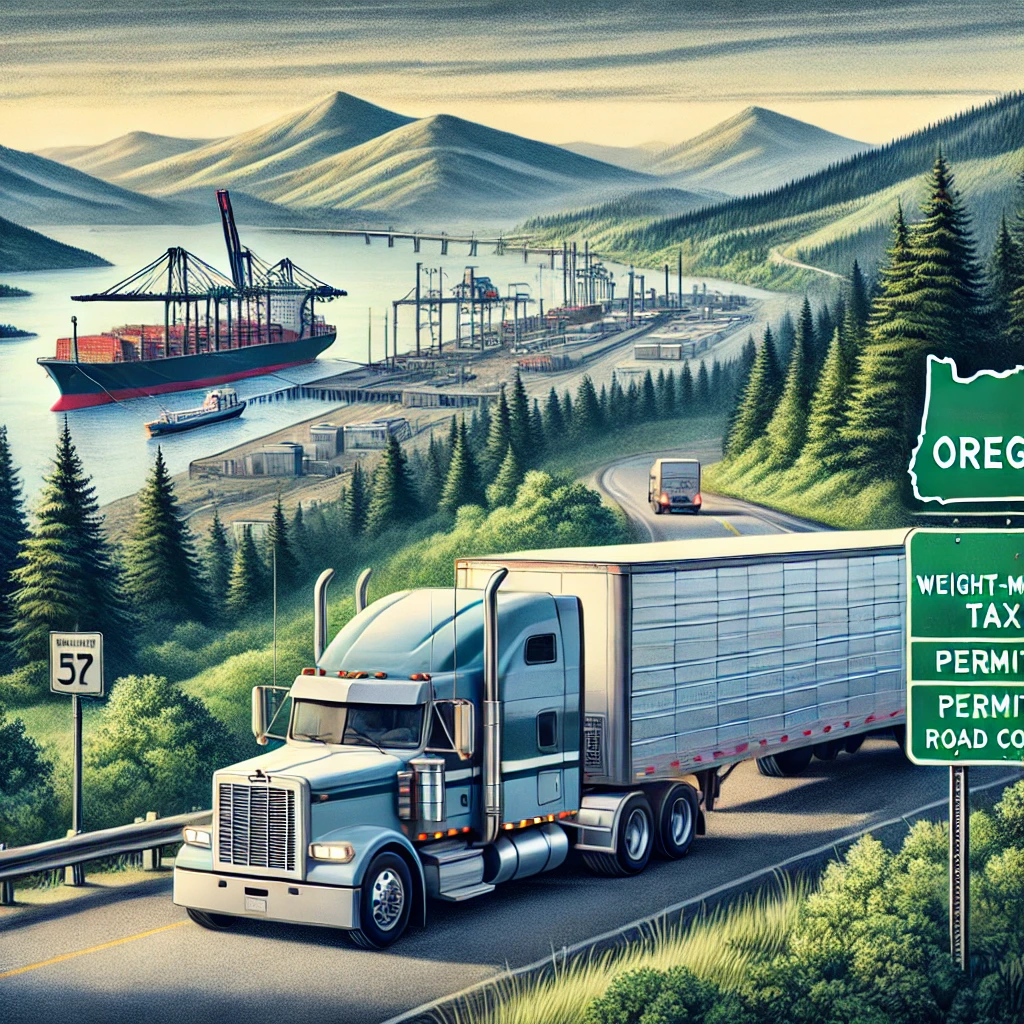
Understanding Oregon Trucking Regulations
Key Regulatory Bodies
- Oregon Department of Transportation (ODOT): Oversees road regulations and commercial vehicle operations.
- Oregon Motor Carrier Transportation Division: Handles permits, registrations, and enforcement of trucking laws.
- Oregon Weight-Mile Tax Office: Manages the unique weight-mile tax system in Oregon.
Important Regulations to Know
- Weight Limits:
- Gross Vehicle Weight Rating (GVWR): 80,000 lbs on interstate highways
- Higher weights allowed on some state highways with appropriate permits
- Size Restrictions:
- Maximum width: 8’6″ (102 inches)
- Maximum height: 14 feet
- Maximum length: Varies by truck type (typically 53′ for semi-trailers)
- Weight-Mile Tax:
- Unique to Oregon, replaces fuel tax for heavy vehicles
- Based on weight of vehicle and miles traveled in Oregon
- Chain Laws:
- Chains required during winter months in designated snow zones
- Specific requirements vary based on vehicle type and road conditions
- Hours of Service:
- Follows federal regulations with some state-specific exemptions
- Oversize/Overweight Permits:
- Required for loads exceeding standard size and weight limits
- Can be obtained online through Oregon’s MCTD system
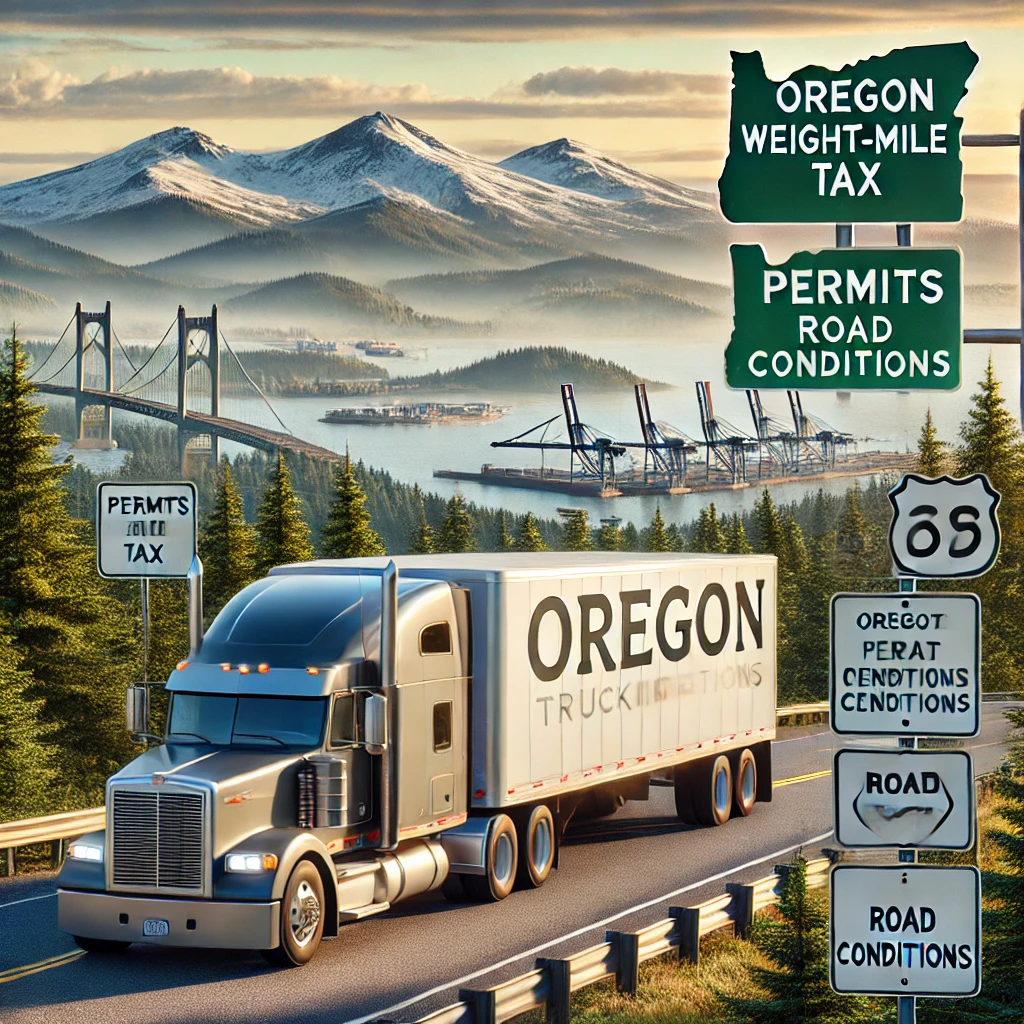
Oregon Trucking Online Resources
1. Oregon Trucking Online (https://www.oregontruckingonline.com/)
The primary portal for trucking-related services in Oregon.
Key Features:
- Permit applications and renewals
- Vehicle registration
- Tax reporting and payments
- IFTA license management
- Access to trucking forms and publications
2. Oregon Department of Transportation Website (https://www.oregon.gov/odot/)
Comprehensive resource for all transportation-related information in Oregon.
Important Sections:
- Commercial Vehicle Operations
- Road Conditions and Closures
- Trucking Industry Resources
- Safety Regulations and Compliance Information
3. Oregon Trucking Associations (OTA) Website (https://www.ortrucking.org/)
Industry association providing advocacy and resources for Oregon’s trucking community.
Offerings:
- Legislative updates
- Industry news
- Training and education resources
- Networking events
4. Oregon Commercial Vehicle Portal (https://www.oregoncvp.com/)
One-stop shop for commercial vehicle credentials and services.
Services:
- IFTA tax reporting
- IRP registration
- UCR registration
- Over-dimension permit services
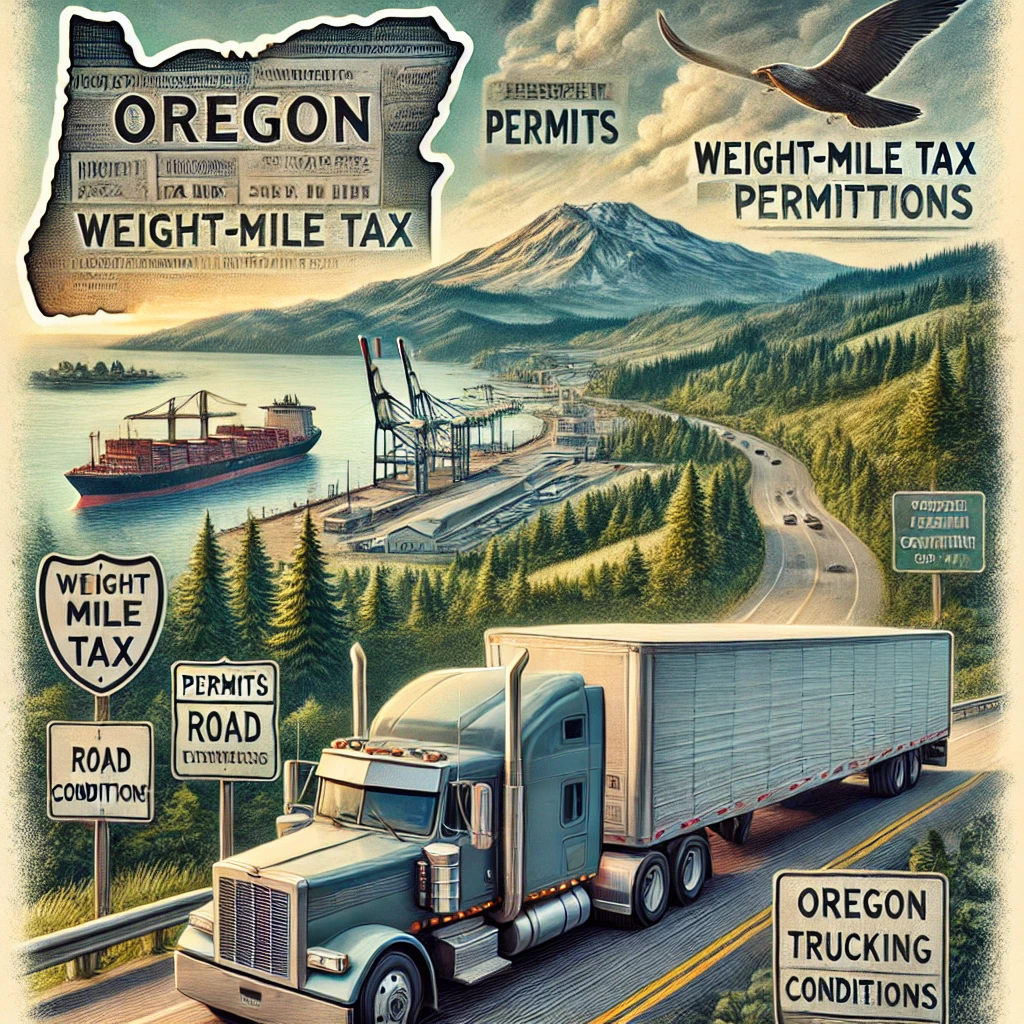
Navigating Oregon Trucking Online: Step-by-Step Guide
Setting Up an Account
- Visit https://www.oregontruckingonline.com/
- Click on “New User Registration”
- Choose between Individual or Company account
- Fill in required information (USDOT number, Tax ID, etc.)
- Create username and password
- Verify account through email confirmation
Applying for Permits
- Log in to your Oregon Trucking Online account
- Select “Permits” from the main menu
- Choose the type of permit needed (e.g., oversize, overweight)
- Enter vehicle and load details
- Select route and dates of travel
- Review and pay for the permit
- Print or save the electronic permit
Filing Weight-Mile Tax Reports
- Access the “Tax Filing” section
- Select the reporting period
- Enter mileage data for each vehicle
- Calculate tax based on weight and miles traveled
- Submit payment online
- Keep records for at least three years
Checking Road Conditions
- Visit TripCheck.com (ODOT’s road condition website)
- View interactive map for current road conditions
- Check for weather alerts, construction zones, and truck restrictions
- Plan routes accordingly to avoid delays and ensure compliance
Best Practices for Using Oregon Trucking Online Resources
- Keep Information Updated: Regularly update your account information and vehicle details.
- Plan Ahead: Apply for permits well in advance of your planned trip.
- Use Mobile-Friendly Features: Many Oregon trucking resources are mobile-optimized for on-the-go access.
- Set Up Alerts: Subscribe to email or text alerts for important updates and deadlines.
- Maintain Accurate Records: Keep detailed logs of mileage and operations for tax and compliance purposes.
- Stay Informed: Regularly check for updates to regulations and procedures.
Common Challenges and Solutions
Challenge 1: Navigating the Weight-Mile Tax System
- Solution: Utilize Oregon’s online calculators and tutorials. Consider using approved electronic logging devices (ELDs) that integrate with Oregon’s system for easier reporting.
Challenge 2: Understanding Seasonal Restrictions
- Solution: Regularly check ODOT’s website for current restrictions. Use the TripCheck website to plan routes that avoid areas with seasonal limitations.
Challenge 3: Managing Multiple Permits
- Solution: Take advantage of Oregon Trucking Online’s permit management system. Consider annual permits for frequent operations in the state.
Challenge 4: Staying Compliant with Changing Regulations
- Solution: Subscribe to updates from ODOT and OTA. Attend virtual workshops and webinars offered by these organizations.
Future of Oregon Trucking Online
As technology continues to evolve, Oregon’s online trucking resources are likely to see enhancements:
- Increased Mobile Integration: More mobile-friendly features and possibly dedicated apps.
- AI-Powered Assistance: Chatbots and AI tools to help with common queries and processes.
- Enhanced Real-Time Data: Improved integration of real-time traffic and weather data for route planning.
- Blockchain for Compliance: Potential use of blockchain technology for more secure and efficient record-keeping.
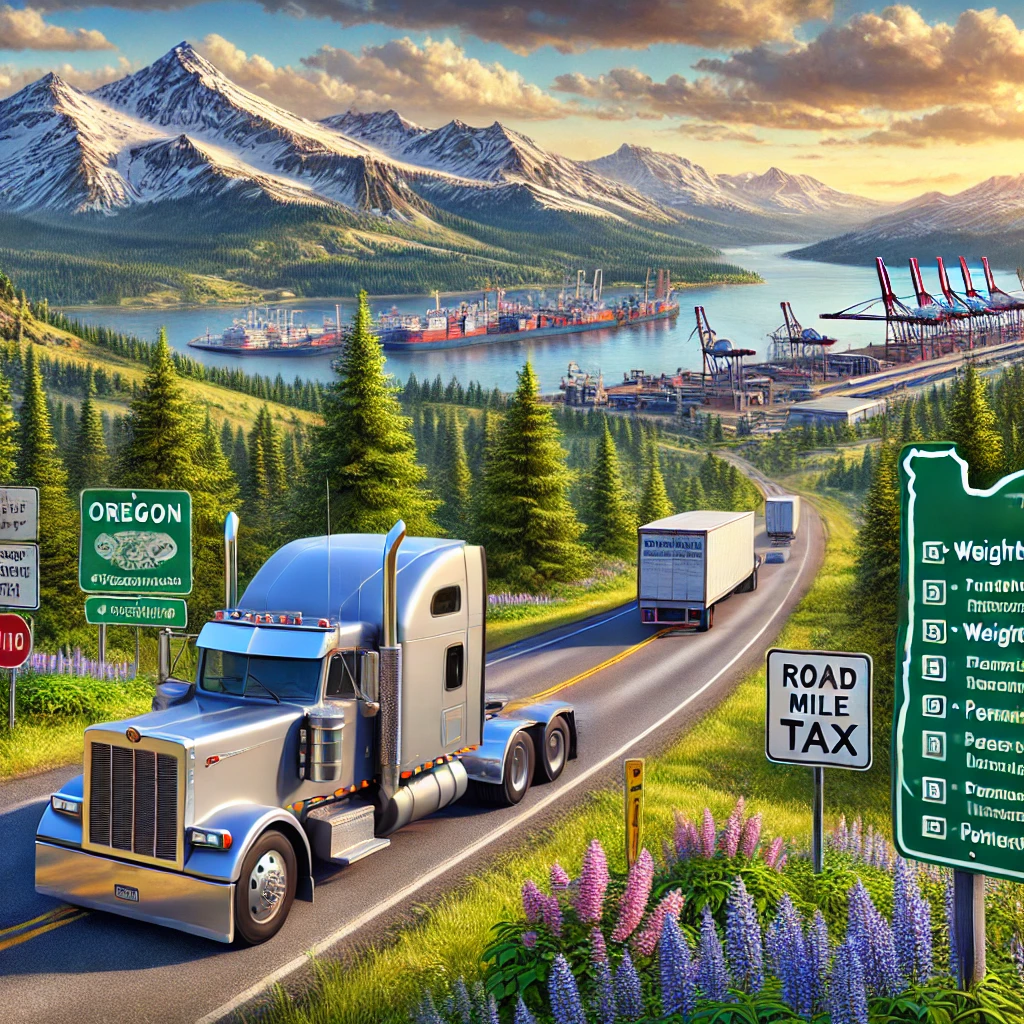
Case Studies: Success with Oregon Trucking Online
Case Study 1: Small Fleet Optimization
- Company: Oregon Express Logistics (5 trucks)
- Challenge: Managing permits and tax filings efficiently
- Solution: Fully adopted Oregon Trucking Online for all operations
- Result: 30% reduction in administrative time, improved compliance
Case Study 2: Large Carrier Integration
- Company: Pacific Northwest Haulers (100+ trucks)
- Challenge: Integrating Oregon’s unique requirements into existing systems
- Solution: Worked with ODOT to develop API connections to their in-house software
- Result: Seamless compliance management, real-time data synchronization
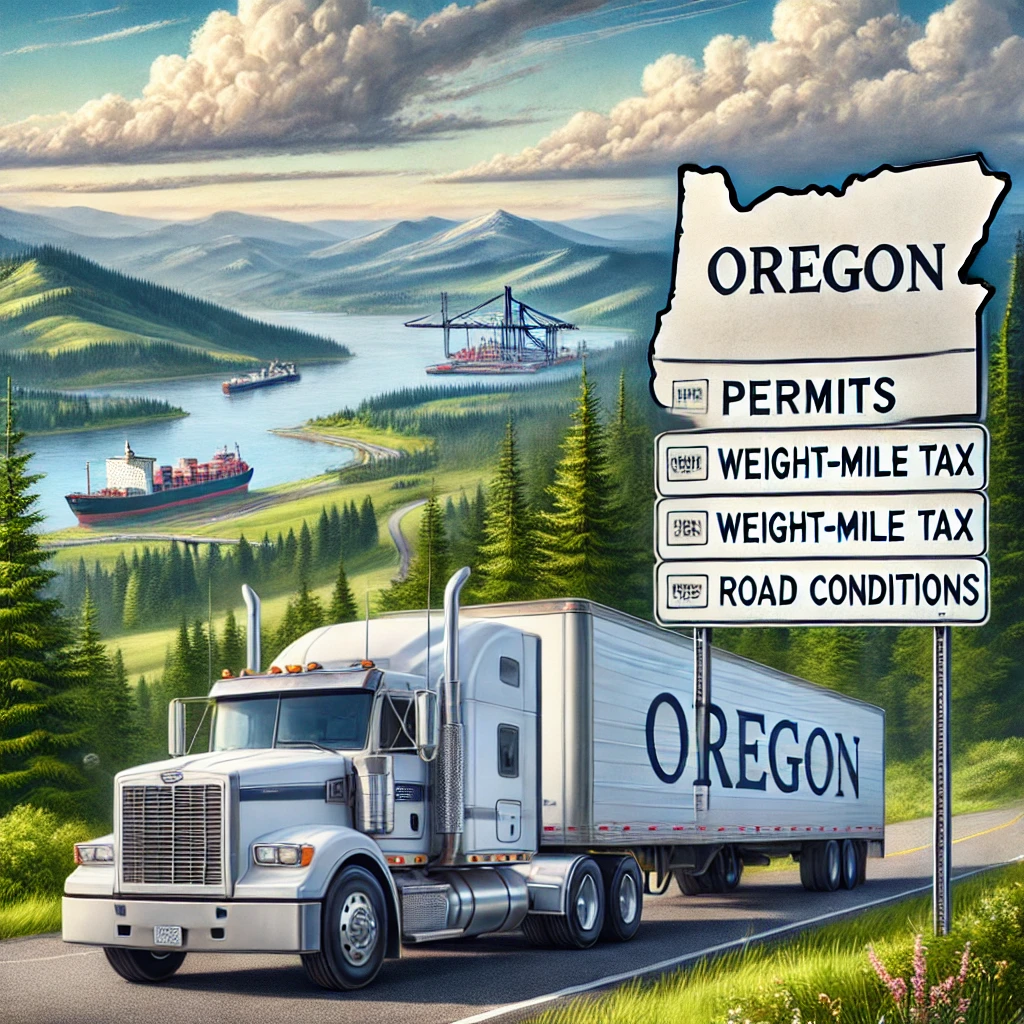
Conclusion
Oregon’s online trucking resources offer a comprehensive suite of tools to help truckers and trucking companies navigate the state’s unique regulatory landscape. By fully leveraging these online platforms, trucking operations can enhance efficiency, ensure compliance, and focus more on their core business of moving freight.
While Oregon provides robust online resources for trucking operations, integrating these systems with your company’s existing software can sometimes be challenging. This is where specialized logistics software solutions, like those offered by Linbis, can play a crucial role. Linbis specializes in developing custom software solutions for the trucking industry, which can include features to seamlessly integrate with state-specific systems like Oregon Trucking Online. By utilizing such tailored software solutions, trucking companies can streamline their operations, ensuring efficient management of permits, taxes, and compliance across multiple jurisdictions, including Oregon’s unique requirements. As the trucking industry continues to evolve, combining state resources with specialized software solutions can provide a significant competitive advantage in navigating the complex regulatory landscape of states like Oregon.
